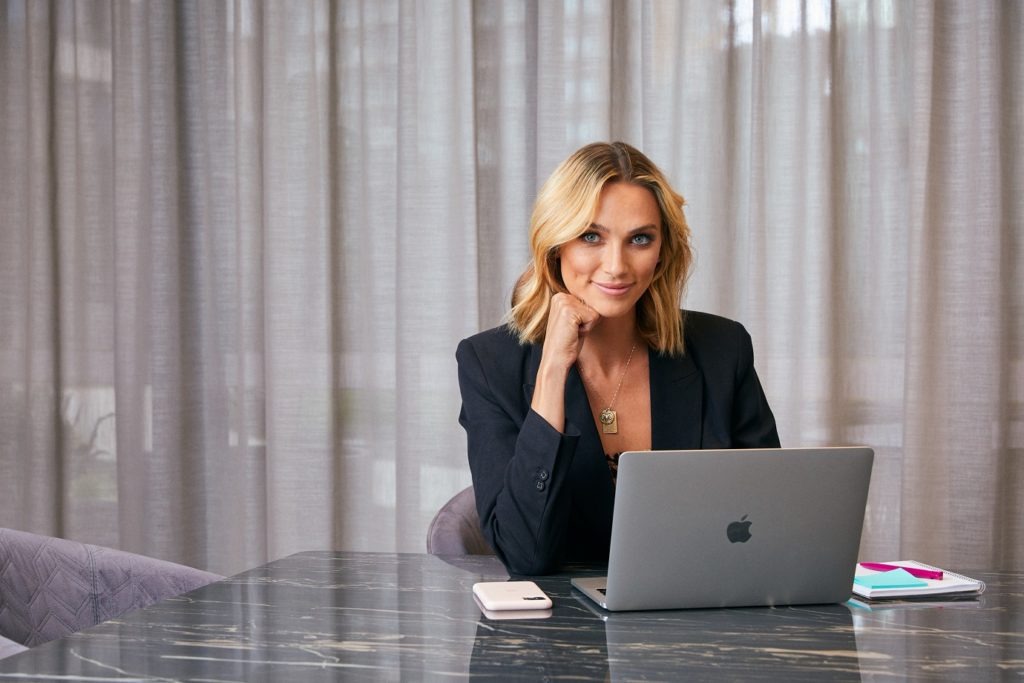Michelle Battersby was working as Chief Marketing Officer at Keep It Cleaner when she was told by a stranger on the internet that she shouldn’t post pictures that showed “too much” of her body on social media.
“I just remember receiving this DM from a complete stranger, telling me that I shouldn’t post bikini pics because I had an exec role,” Battersby told Women’s Agenda recently.
The unsolicited advice tugged on insecurities she’d harboured from her days working in a more corporate environment, and Battersby admits that at the time, she probably believed what he was telling her.
“I feel like I probably did begin to hold back a little more on social media at that time. And I think a lot of women would be able to relate to that,” she said. “But I think it’s so important that we start to flip that narrative.”
Earlier this year, Battersby, a former Bumble Australia executive, launched Sunroom with her co-founder Lucy Mort. It’s an app where women and non-binary creators can share what they want, and make money from it, without the judgement and restrictions they so often face on other platforms like Instagram.
On Sunroom, taking screenshots isn’t possible, nipples aren’t censored, and creators are given a safe space to offer their most loyal supporters less filtered content and more of their expertise, or insight into their personal lives. Body positive, sexual wellness and health content are some of the more popular areas for creators on the app.
And it’s on Sunroom that Battersby has been able to flip the narrative – for herself and so many others – on the limits of what women and non-binary people can be in their professional, personal and online lives.
“I’m now in this position with Sunroom where I feel like I really need to live out the brand and I have unlearned a lot of these things,” she says. “I’ve identified the internalised misogyny that existed in myself that made me feel like I had to hide some of who I was.”
“I feel safe expressing myself in this new way on Sunroom. It’s been really liberating, and I’ve proven a point that I’ve not lost any credibility. I’ve not been seen as unprofessional, nothing’s happened to my reputation, and I think more people need to see that.”

In the development stages of Sunroom, Battersby said she would speak to creator after creator who had experienced unfair censoring and shadow banning on social media platforms like Instagram and TikTok.
“They would put something out there online that was really empowering for them and they felt really great about it, and then it was either removed, or they experienced trolling,” Battersby explains.
“That can be super disheartening and demotivating and can lead to creators self-censoring.”
Sunroom built its community guidelines off the back of conversations with creators, and they decided to create an app that would give more space to topics that are unfairly moderated elsewhere.
Battersby believes creators are able to bring their whole selves to the table on Sunroom in a way they can’t in other online spaces, and she loves being able to provide a space for that transition.
“Creators are looking for ways to diversify what they’re doing and they’re looking for ways to connect with their audiences differently, and they’re looking for ways to diversify how they make money,” she explains. “We’re seeing our creators really open up and treat Sunroom almost like a digital diary where they can feel safe to express themselves.”
Ultimately, Sunroom is about removing stigmas, and Battersby is excited to take people along for the ride, confronting important conservations that often aren’t given the time of day.
“What we’re trying to do is remove the stigma women and non-binary creators face, and create a space where asking for more, or showing more in their pursuit of wealth can mean different things. That can mean being a bit more sensual. That can mean being a little bit more feminine. It can also mean being more vulnerable.”


